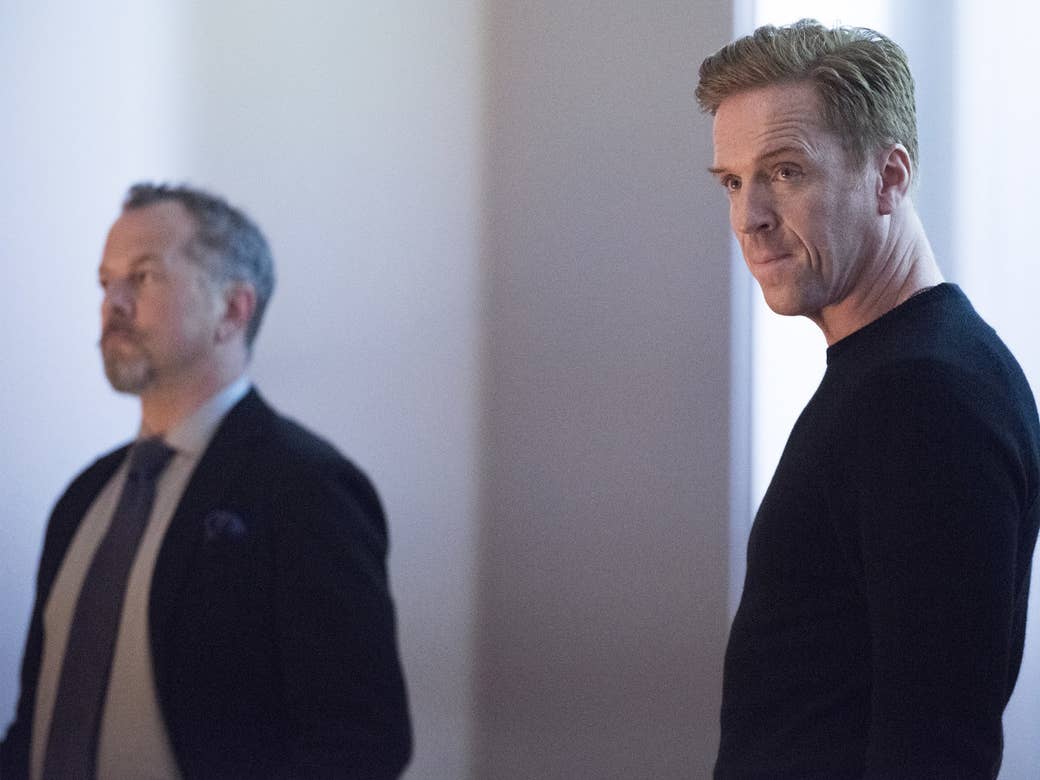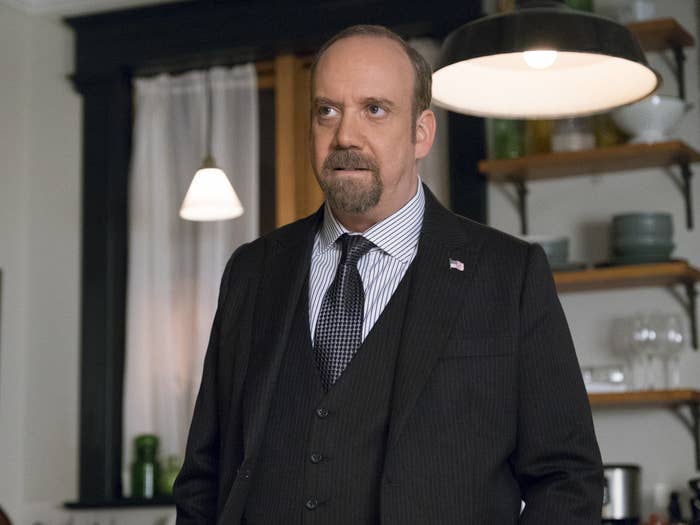
Season 1 of the Showtime drama Billions was a borderline-camp delight: the melodramatic tale of a war between an ethically challenged hedge-fund king and a US attorney — who has a few ethical lapses of his own — determined to take him down no matter what. The hedge funder, Bobby “Axe” Axelrod (Damian Lewis), seems loosely based on Steve Cohen, who shut down his firm, SAC Capital Advisors, after being charged with insider trading; the lawyer, Chuck Rhoades (Paul Giamatti), seems inspired by US Attorney for the Southern District of New York Preet Bharara, who has crusaded against corporate crime, particularly on Wall Street (he has also consulted on the show).
Co-creators Brian Koppelman and David Levien were initially nervous that the show wouldn't resonate with people outside of Wall Street — and they had reason to be. As Variety pointed out just prior to the show's premiere in January 2016, "television has consistently been a hostile environment for Wall Street-centered shows, even as movies, from Oliver Stone’s Wall Street to Martin Scorsese’s The Wolf of Wall Street, have tackled the terrain with far greater success." But the story seemed to mirror real life just enough that it offered a dishy window into two elite worlds, while also highlighting the tensions between the super-ultra-rich and the rest of us — themes that were then playing out in the campaign for president. And the series was a ratings hit for Showtime in its first season, with an average of over 1 million viewers per episode; it got renewed after Episode 2.
The way Billions portrays the cat-and-mouse game between its two main characters is definitely larger than life: For one thing, Chuck’s wife, Wendy (Maggie Siff), works for Bobby as a performance coach, which in any normal world should’ve prevented Chuck from working on the case to bring him down on insider trading charges. But Chuck has tunnel vision when it comes to Axe; he’ll bring him down even if he has to snoop on his wife’s computer to get the information he needs. On Billions, even the good guys are the bad guys.
And in the more innocent days of last season, the drama around this moral ambiguity was exciting. We knew the charismatic Axe was making money illegally, but it was also hard not to root for him, at least a little bit. And Giamatti’s Chuck is such a hard character to like: He’s petty and conniving, and he’s an asshole to pretty much everyone in his life. No wonder he can only find peace when he’s getting pissed on by a dominatrix.
Season 1 ends with Axe literally tearing apart his office to try (in vain) to find the bugs he’s convinced that Chuck’s office has put there (it's hard to rewatch the episode and not think of President Trump's current obsession with finding leakers), and Season 2 opens with new security procedures in place at the office. And we quickly learn the feds are launching an investigation of Chuck’s conduct during his quest to take down Axe — an investigation that seems to have been set in motion by Axe’s shadowy henchman.

But something feels off about the new season. The show hasn't really changed — Axe and Chuck are still in a cat-and-mouse game, and everyone in their respective orbits is also engaged in their own machinations for money and power — but we have. At its core, Billions is a show about power: not just people asserting power over others, but also the notion that power is only achievable when you don’t play by the rules. Axe Capital wouldn’t exist if Axe hadn’t profited wildly in the post-9/11 era — even as most of his former firm was wiped out — and his current business strategy is predicated upon getting insider information illegally, using henchmen to do his dirty work. Chuck, too, traffics in ill-gotten information, and his rise to power was undoubtedly aided and abetted by his very powerful father.
In the Obama era, these elements of Billions felt like escapism. Obama was certainly no enemy of Wall Street. But he did at least attempt to tighten financial regulations, pushing for legislation like 2010's Dodd-Frank Act, which imposed new regulations on banks; he also appointed US attorneys like Bharara, who have made taking down corrupt Wall Streeters their life's work. Last year, you could watch Billions with the comfort of knowing that the "real" Chuck Rhoades was out there, at least trying to enforce the rules — with the backing of the president.
But our new president is someone who not only flouts rules, but does so proudly and publicly. Rule-flouting is, in fact, one of the hallmarks of Donald Trump's administration. And although Bharara is still in office, Trump has loaded up his cabinet and government with billionaires who'd probably get along great with Bobby Axelrod, and has declared his intention to undo Dodd-Frank, among other regulations that aimed to protect the 99% — even as Trump fashions himself a man of the people.
In the last few weeks, books like The Handmaid’s Tale and 1984 have seen a resurgence in popularity, as these dystopian novels seem to mirror elements of what is currently happening in American society to an uncomfortable degree. But both these books have a point of view that is sharply critical — and wary — of the ways in which power can destroy. On Billions, that morality is murkier, and considering those gray areas might be too depressing right now.
On the other hand, perhaps it's never been more urgent to watch a show like Billions. Instead of escapism, maybe Billions can offer insight and understanding into the ways that rule-breakers think and operate, and the ways in which power is consolidated and maintained. If the game is going to be rigged anyway, isn't it better to know as much as we can about who's rigging it?
